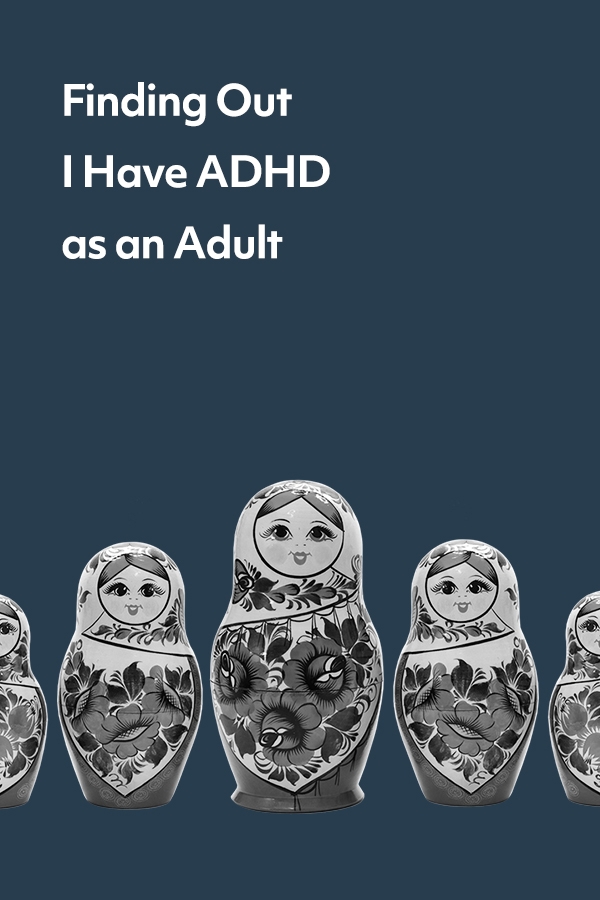We tend to think of it as affecting kids, but I didn’t get my ADHD diagnosis until I was an adult. It was a major revelation about my coping mechanisms and behaviors.
Finding out I had ADHD was one of those “A-hah!” moments they talk about in the rooms, where you gain a level of clarity you’ve never had before. It’s like looking at yourself from a bird’s eye view and finally being able to see how all the parts of you fit together. In my case, this diagnosis revealed a fascinating display of complex coping strategies and explained so many aspects of my behavior that I’d just thought were due to running a business.
Learning about ADHD for work opened my eyes
In recent weeks, I’ve been writing about co-occurring conditions that are often diagnosed alongside substance use disorder, like ADHD. I’ve also been following the journeys of my recovery peers on Instagram as they’ve learned about their own mental health diagnoses. Those insights, together with the sheer mental, physical, and emotional exhaustion I felt at the end of each day, combined to create the moment of clarity I described above.
“What if I have ADHD?!” I asked myself.
The gender gap in diagnosis
In the research I conducted for my copywriting and observations of my peers, I’d learned that ADHD presents differently in adult women and oftentimes goes undiagnosed. According to the Centers for Disease Control and Prevention, males are more likely to be diagnosed than females at a rate of 12.9 percent versus 5.6 percent.
The main difference in ADHD diagnosis by gender is because women have fewer external symptoms than men, such as aggression, but more internal symptoms like anxiety and depression. I had adapted some coping mechanisms to help with some of the symptoms, to the point I didn’t think I had them. I force myself to sit at my desk, but I snack a lot for a distraction.
What makes matters particularly difficult in diagnosis and treatment is that the diagnostic criteria for ADHD are outdated and don’t make those distinctions between males and females.
The symptoms I experienced, included:
- Difficulty concentrating on one thing
- Easily distracted, often with around 50 tabs open, and checking social media every 5 minutes
- Comfort eating even when not hungry
- I have two speeds: ‘Always on the go’ and ‘couch potato’
- Watching TV with my phone
- Impulsivity
- Difficulty multitasking, but when I do, it causes burnout
- Procrastinating
- Overspending
- Feeling overwhelmed in stores, parties, and in the office
- Fidgeting and restlessness
- Difficulty waiting my turn and tendency to interrupt in conversations
- Cannot cope with noise, like multiple speaking at once, or someone talking over the television. I feel like I might implode
- Depression
- Anxiety
- Constant state of being overwhelmed
- Burnout, regularly
- I have to get up and leave my desk frequently. I did this in school and college, too, going to the bathroom because I needed a break from concentrating
- Reluctance to do activities that require sustained effort
My symptoms don’t follow the traditional list of what we think ADHD is: impulsive, hyperactive, and inattentive. This may be because of gender differences, and also the differences in ADHD type.
There are three different types of ADHD:
- Hyperactive-impulsive: emotional, interrupts, difficulty staying still, and may struggle to complete tasks. People with this type like to constantly move.
- Inattentive: characterized as inattentiveness and are frequently distracted, have a poor working memory, and lose things.
- Combined type: as the title suggests, this type is a combination of hyperactive symptoms and inattentive symptoms.
Coping with ADHD
What’s interesting about ADHD in women is that we still manage full-time jobs. This contrasts with men with ADHD who, generally speaking, are more likely to report difficulty in completing tasks and experiencing anger towards staff. It’s more common for women to experience burnout and overwhelm, which was certainly the case for me. Heck, I managed to organize a plan to move to America and start a business here that I’ve been running for 5 years. I also manage to write several articles a day and go to grad school.
But it’s hard. I feel wired and exhausted at the end of every day and have little energy to do other things. Grad school is particularly difficult because I find it so hard to be in class. In fact, I had to switch programs so that I could watch videos instead of attending long, slow classes. Writing assignments, however, is possible, but I procrastinate. I can’t talk to other people and I can’t bear noise when I am focusing on school work. When I’ve finished an assignment, I have to either go to bed or zone out in front of the TV.
The great thing about recovery is that I know when things get too hard, I have to seek help. That’s why I reached out to my therapist and talked to her about what I was thinking. She had no doubts I’ve had ADHD the whole time she has been treating me. It seems like I was the only one who didn’t know!
While I’ve written a lot about how troubling that diagnosis is, I think it’s ultimately a positive thing. I’ve tended to my needs and I’ve gotten an understanding about why I’ve found things so difficult in life. I’ve constantly compared myself to others who seem to get so much done and have the energy to do things after work.
It also explains one main reason why I drank: I was self-medicating. All this time I’ve thought I had substance use disorder and anxiety and depression, when in fact I had ADHD and I self-medicated with alcohol and drugs and developed addiction. Moving ahead, I’m looking forward to developing some more effective coping strategies that give my mind and body the focus and rest it needs.









